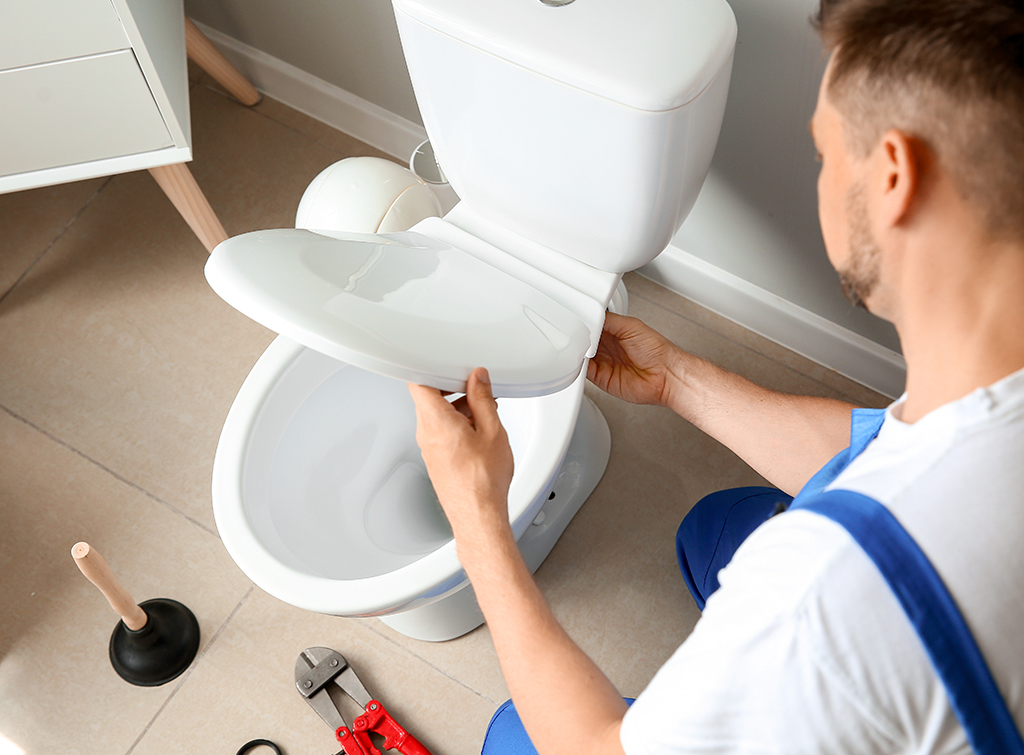Mastering Bathroom Plumbing: Key Guidelines for First-Time Home Buyers
Mastering Bathroom Plumbing: Key Guidelines for First-Time Home Buyers
Blog Article
We have stumbled on the article on 11 Must-Read Tips for Plumbing a New House directly below on the internet and decided it made sense to quickly share it with you on this site.

For new property owners, understanding and preserving bathroom plumbing can save both time and money by avoiding costly problems down the line. Right here are some crucial bathroom plumbing tips to help you keep everything running smoothly.
Familiarize Yourself with the Main Shut-Off Valve
Knowing where the main water shut-off valve is located in your house is essential. This allows you to rapidly turn off the supply of water in case of major leaks or throughout pipes emergency situations, protecting against comprehensive water damages.
Routinely Evaluate for Leaks
Little leakages can lead to big troubles. Consistently check under sinks, around toilets, and near plumbing fixtures for any indicators of leakages. Search for dampness, little drips, or rust. Catching and fixing leaks early can avoid more significant damages and conserve water.
Don't Ignore Slow Drains Pipes
If your sink or tub is draining gradually, it's often an indicator of a blockage forming. Resolving this early can prevent a full clog. Utilize a bettor or a plumbing technician's snake to clear out particles. Stay clear of making use of chemical drain cleansers as they can harm your pipes over time.
Know What Not to Flush
Commodes are not waste disposal unit. Stay clear of flushing anything other than toilet paper and human waste. Items like wipes, womanly hygiene items, and cotton swabs ought to be dealt with in the garbage to prevent obstructions and sewer backups.
Install Strainers in Drains
Place filters in your sink and bathtub drains pipes to catch hair and various other debris prior to they enter your pipes system. Cleaning up the strainers frequently will aid prevent buildup and keep water streaming easily.
Maintain Your Hot Water Heater
Guarantee your hot water heater is readied to an appropriate temperature (typically around 120 degrees Fahrenheit) to avoid hot and minimize energy usage. Flush the storage tank every year to eliminate debris build-up, which can lower the efficiency and life expectancy of your heating system.
Update Your Components
If your home has older components, consider upgrading to more effective versions. Modern commodes, showerheads, and taps are created to use less water while giving great stress, which can considerably reduce your water expense and ecological footprint.
Beware with Do It Yourself Pipes Repair Works
While it's tempting to manage all home repairs by yourself, be cautious with plumbing. Some concerns could require specialist proficiency, particularly if they include primary water lines or sewer repairs. Working with a specialist can often be extra economical than do it yourself, especially if it prevents further damages.
Plan For Winter
Shield your pipelines from cold throughout winter by shielding pipes in unheated areas like basements, attics, and garages. During extreme chilly, let cold water drip from taps offered by revealed pipelines to assist stop cold.
Schedule Routine Maintenance
Think about organizing yearly inspections with a qualified plumber. They can spot issues that you might miss, such as surprise leakages or wear and tear on pipes and fixtures. Routine maintenance helps extend the life of your pipes system and can stop emergencies.
Conclusion
Comprehending and maintaining your home's washroom pipes can avoid numerous common concerns. By adhering to these necessary ideas, you can ensure your washroom continues to be practical and reliable, saving you money and time in the future.
Essential Plumbing Tips for Homeowners: Keep Your Pipes Flowing Smoothly
As a homeowner, understanding the basics of your plumbing system can save you time, money, and a lot of headaches. Plumbing issues can range from minor annoyances like dripping faucets to major problems like burst pipes that cause significant damage. This guide provides essential tips to help you maintain your plumbing system and tackle common issues.
Understanding Your Plumbing System
Supply System: Brings fresh water into your home from a municipal source or a well. Drain-Waste-Vent System: Removes wastewater and vents sewer gases outside. Fixtures and Appliances: Includes sinks, toilets, showers, dishwashers, and washing machines. Basic Maintenance Tips
Regular Inspections: Periodically check for leaks, corrosion, and other signs of wear and tear. Look under sinks, around toilets, and near water heaters. Know Your Main Shut-Off Valve: In case of a major leak, you’ll need to shut off the water quickly. Ensure everyone in your household knows where the main shut-off valve is located. Prevent Frozen Pipes: In cold climates, insulate exposed pipes and let faucets drip during extreme cold to prevent freezing. Use Strainers: Install strainers in sinks and tubs to catch hair, food particles, and other debris that can cause clogs. Common Plumbing Issues and Solutions
Clogged Drains:
Prevention: Avoid pouring grease down the drain and use drain screens to catch debris. DIY Fix: Use a plunger or a plumbing snake to clear minor clogs. For stubborn clogs, a mixture of baking soda and vinegar can sometimes help. Leaky Faucets:
Prevention: Replace washers and seals regularly. DIY Fix: Turn off the water supply, disassemble the faucet, and replace worn parts.

Schedule An Appointment Report this page